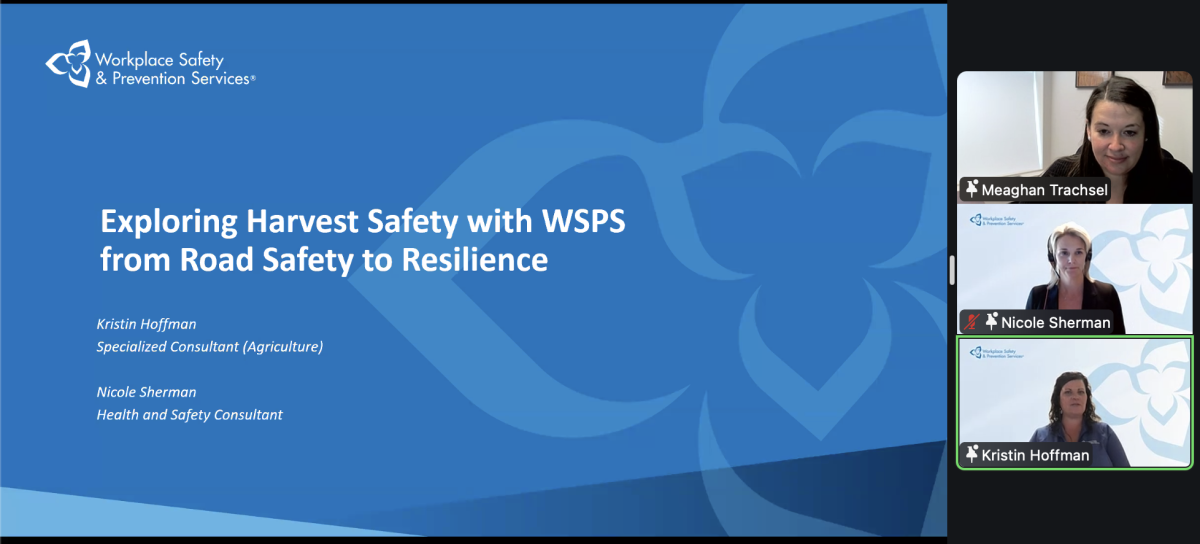Now back in session after the Olympics, the federal government has announced plans to put the thorny issue of Prairie barley marketing on its agenda.
In its Throne speech Wednesday, delivered by Gov. Gen. Michaelle Jean, the Conservative government said it plans to “ensure the freedom of choice for which Western barley farmers overwhelmingly voted.”
The speech didn’t specify whether the government plans to introduce new legislation to that effect or exempt Prairie barley growers from the Canadian Wheat Board’s single marketing desk by some other means.
Read Also

Exploring Harvest Safety
Kristin Hoffman of WSPS explains measures for increased farm safety around harvest season
Deregulating the Prairie barley market through legislation is currently an unlikely route, given the Conservatives’ minority-government status and a lack of support for barley deregulation among the opposition parties.
Also on the government’s agenda in Wednesday’s speech are “steps to support a competitive livestock industry and pursue market access for agricultural products.”
Furthermore, the government pledged “it will continue to defend supply management of dairy and poultry products.”
The speech also commits the government to “reintroduce legislation to protect Canadian families from unsafe food, dru
On its spending agenda, the government pledged to “freeze departmental operating budgets,” which cover spending on “salaries, administration and overhead.”
The government said it will launch “a review of administrative services to improve their efficiency and eliminate duplication” and “aggressively review all departmental spending to ensure value for money and tangible results.”
And while the speech didn’t name any particular Crown agency, the government said it “will also eliminate unnecessary appointments to federal agencies, boards, commissions and Crown corporations.”
The government also pledged to further sharpen its focus on bilateral trade agreements with other countries, in view of “the disappointing results of the Doha round of multilateral trade negotiations” through the World Trade Organization and a “rapidly evolving global marketplace.”
That includes implementing Canada’s free trade agreements with Peru and the European Free Trade Association (Iceland, Liechtenstein, Norway and Switzerland) and ask Parliament to ratify new agreements with Colombia, Jordan and Panama.
The speech also committed Canada to continue trade talks with the European Union, India, South Korea, the Caribbean Community and “other countries of the Americas.”
“Without hesitation”
The federal Liberals’ agriculture critic, Wayne Easter, said in a separate release Wednesday that the lack of specific plans or supports for the livestock sector “signals that this government is prepared to sacrifice an entire industry without any hesitation.”
Easter proposed the government offer “immediate assistance” to the industry by eliminating meat packers’ costs of removing specified risk material (SRMs, the tissues known to harbour the proteins that cause BSE in infected animals).
As well, Easter called for the government to remove cost-recovery fees, such as fees charged to producers for potato inspections.
In an interview Thursday, Easter said the U.S. government covers such fees as a matter of food safety, thus such payments would not be considered a trade-distorting farm subsidy.
Furthermore, he called for elimination of the viability test and changes to the reference margin for safety net programs, both of which he said would free up support for “hard-pressed” producers.














